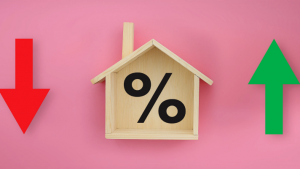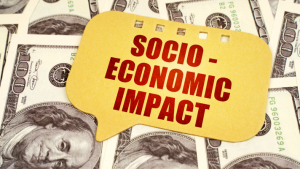Key Factors That Drive the Real Estate Market

[mashshare]
 Real estate is a significant asset to many people and this is especially true for homeowners in the United States. According to the Survey of Consumer Finances by the Federal Reserve, 64.9% of American families owned their own primary residence in 2019. Real estate represents a large and lucrative sector for many investors because of the nature and scale of the market. The article will look at some of the main factors that affect the real estate market and the variety of investments available in it.
Real estate is a significant asset to many people and this is especially true for homeowners in the United States. According to the Survey of Consumer Finances by the Federal Reserve, 64.9% of American families owned their own primary residence in 2019. Real estate represents a large and lucrative sector for many investors because of the nature and scale of the market. The article will look at some of the main factors that affect the real estate market and the variety of investments available in it.
In Pakistan, real estate is considered to be one of the most common and widely practiced investment opportunities.
As mentioned, real estate is one of the most profitable and lucrative investments in Pakistan. The profits gained from owning real estate properties are higher than other investments, so people invest in this sector for the long term. There are many construction companies developing real estate projects that you can invest in.
What else do you need in an investment?
In spite of the fact that this is not a haphazard thing, there are some factors that can make or break the real estate market. This leads to science and knowing these factors will help you come up with the right decisions.
“Luckily for you, CORE Member, we’ve produced a list of the key factors that drive the real estate market. Remember, that while the first step is completing any of these amazing blogs, the second and possibly more important step is taking action even if it’s imperfect action.
Let’s dive headfirst into that list.
- Demographics
 Demographics are data such as age, race, gender, income, migration patterns and population growth. This data is often overlooked and has a significant effect on real estate pricing and the types of properties that are in demand. Shifts in demographic trends can have a large impact on real estate trends for multiple decades.
Demographics are data such as age, race, gender, income, migration patterns and population growth. This data is often overlooked and has a significant effect on real estate pricing and the types of properties that are in demand. Shifts in demographic trends can have a large impact on real estate trends for multiple decades.
The baby boomers who were born during the time frame between 1945-1964 are an example of a demographic trend which is notably important when evaluating the real estate market. The transition of these baby boomers to retirement is one of the more interesting generational trends in history, and the retirement of these baby boomers began back in 2011, which means it is highly anticipated in the real estate market for many years to come.
With the changes to the demographics in developed countries, investors must prepare for a number of effects. There are many questions that can help with this process, such as: Will more people retire and decrease demand for vacation homes? What will the effect be if salaries are smaller in traditional times when children were living at home? By asking these questions and others, investors can begin to understand which investment opportunities are likely to meet certain requirements.
Real estate can be influenced by the demographics.
The first and foremost factor that a real estate company needs to consider to ensure steady growth is statistics on income, migration patterns, and population growth. When analytics show these numbers with consistency, it can often lead to a jump in productivity and revenue.
- Government Policies
When considering investing in property, it is important to consider government policies. Government policies can have a significant effect on the price and demand of a property. There may be a temporary increase in demand for real estate through tax credits, deductions and subsidies. It’s important to understand the current political climate in order to identify changes in supply and demand as well as make smart investment decisions.
 Be aware of information sources. The 2009 U.S. first-time home buyer’s tax was limited by the time it was offered, and many Americans purchasing their homes for the first time found this out after only a few weeks into the process. Because of that, it did not work as intended and only helped to maintain momentum in some markets but not all.
Be aware of information sources. The 2009 U.S. first-time home buyer’s tax was limited by the time it was offered, and many Americans purchasing their homes for the first time found this out after only a few weeks into the process. Because of that, it did not work as intended and only helped to maintain momentum in some markets but not all.
The shutdown of the United States government had an impact on over eight hundred thousand federal workers, including employees in the Housing and Urban Development sector. A study of twenty-one hundred members of the National Association of Realtors showed that eleven percent of respondents reported the shutdown had an impact on their current clients, while eleven percent said it impacted their potential clients. Of those affected by the impact, twenty-five percent reported buyers refused to buy property because there was uncertainty in the housing market.
Some legislation can have a substantial effect on property demand and prices. Tax credits, deductions and subsidies are ways the government can temporarily boost demand for real estate until they’re phased out. Being aware of current government incentives may help you identify changes in supply and demand and also identify fraudulent trends. For example, in 2009, the U.S. government introduced a first-time homebuyer’s tax credit to help jump-start home sales in a sluggish economy.
According to the National Association of Realtors (NAR), this tax incentive alone led to 900,000 home buyers purchasing homes. This was quite a sizable increase, although temporary, and without knowing the increase was due to this tax incentive, you may have concluded that demand for housing was going up based on other factors like population growth or increased wealth levels.
- Interest Rates
Interest rates also have a major impact on the real estate markets. If you’re considering buying a home with a mortgage it is beneficial to use a mortgage calculator to research interest rates. Changes in interest rates can greatly influence someone’s ability to purchase residential property, as lower interest rates mean lower costs for obtaining credit and making purchases to purchase a home.
 When interest rates rise, real estate loses value and this makes it more expensive. As a result, the cost to obtain a mortgage also rises. However, from an investment standpoint (i.e., equity) you can think of the relationship between interest rates and REITs as similar to bonds. When interest rates decline, the value of a bond goes up because its coupon rate is more desirable than before, and when interest rates increase, the value of bonds decreases. Similarly, when market interest rates decrease, REITs’ high yields become more appealing which increases their value. When interest rates increase however, the yield on REITs becomes less attractive and they lose some of their appeal while they push their values down.
When interest rates rise, real estate loses value and this makes it more expensive. As a result, the cost to obtain a mortgage also rises. However, from an investment standpoint (i.e., equity) you can think of the relationship between interest rates and REITs as similar to bonds. When interest rates decline, the value of a bond goes up because its coupon rate is more desirable than before, and when interest rates increase, the value of bonds decreases. Similarly, when market interest rates decrease, REITs’ high yields become more appealing which increases their value. When interest rates increase however, the yield on REITs becomes less attractive and they lose some of their appeal while they push their values down.
Interest rates are very important to the real estate market. They drive the demand of buying homes. Lending money is more affordable when interest rates are low and this can motivate people to buy a home.
However, interest rates are not in sudden decline. Interest rates typically fluctuate slowly, so as long as people have time to lock in their purchase price, the market will continue to be strong.
Though, due to unavailability of bank loans, your chances of investing in real estate are diminished at a time when interest rates are too high.
With changes in interest rates, people’s purchasing power to buy residential property changes. As the interest rates fall, the cost to obtain a mortgage goes down, which creates a higher demand for real estate. Conversely, as interest rates rise, the cost to obtain a mortgage goes up and the demand for real estate decreases.
However, when it comes to investing in non-residential property like a real estate investment trust, the relationship is similar to a bond’s relationship with interest rates. When the interest rates go down, the value of a bond goes up because its coupon rate becomes more desirable and when interest rates go up, the value of bonds decrease like with any other type of debt worth holding. When interest rates go down in the market, REIT’s high yields become more attractive and their value goes up. When interest rates increase, it becomes less attractive to invest in REITs making them lose money over time.
A change in interest rates from a real estate company can be huge for the demand. If a real estate company is constantly changing their interest rate for an individual property, then this would hinder the growth of the market instead of increasing it. Keeping the rate constant will only make a rigid situation and harm its economy.
- Economy
Similarly to real estate, the health of the economy is also a factor that correlates with the value. This is measured by wider factors such as GDP, employment rates, and manufacturing activity. When the economy slows down, so does the value of property.
 Real estate investment cycles can vary, but the effect of economic downturns on specific real-estate investments might not be as straightforward as REITs with a high concentration in hotels vs those that have a high percentage of office investments. Hotel customers are sensitive to short-term business activity whereas most office tenants would be impacted by long term contracts that cannot be easily avoided by the tenant during a recession. Therefore, it’s important not just to know where an investment is in its business cycle, but also what type of property it invests in and how sensitive it is to this particular industry’s economic performance.
Real estate investment cycles can vary, but the effect of economic downturns on specific real-estate investments might not be as straightforward as REITs with a high concentration in hotels vs those that have a high percentage of office investments. Hotel customers are sensitive to short-term business activity whereas most office tenants would be impacted by long term contracts that cannot be easily avoided by the tenant during a recession. Therefore, it’s important not just to know where an investment is in its business cycle, but also what type of property it invests in and how sensitive it is to this particular industry’s economic performance.
A bad economy has a strong impact on the housing market. Looking back at the 2008 housing market collapse as a prime example, people were losing their jobs and struggling to make ends meet. When this happened, they did not think they could afford new homes.
The interest rate on your credit card was just too high and you didn’t want to take the risk of having a loan from the bank. You were also worried about losing your job, which led you to fall behind on saving for retirement.
As economic growth and employment stabilize, people will begin to consider the idea of buying a house, as they’ve previously felt too afraid to do so.
- Supply and Demand
Supply and demand has a significant impact on the real estate market. In terms of inventory, certain cities have a shortage of space and thus there is high demand for housing, while in some other regions it’s because there isn’t enough supply.
If prices rise too much or new tariffs are introduced, then builders don’t want to make new homes because people don’t have enough money to buy them. If demand falls, then builders stop making them and the market’s supply falls.
- The Stock Market
Defined by global capitalism, the home market is very volatile; this decreases the value of a property and may cause fear in potential buyers. Housing is another example of how we are conditioned to protect what we have. With stocks fluctuating and the global economy still unstable, more people are saving their money rather than spending on homes.
However, as the stock market gains traction, people regain confidence and begin to look at buying houses again.
Socio-Economic Factors
The condition of the economy affects individual and collective real estate in a reciprocal way. However, these changes are not uniform across all individuals, due to the variance in investment strategies with factors such as construction costs, inventory mixes and seasonal trends. As the economy struggles, there exist additional opportunities for those who may be able to take advantage of depressed property values. In areas where property values are low, investors and first-time buyers who might otherwise not be able to afford a home may find themselves buying at a reduced price.
 There are situations in which knowing what kind of commercial property to invest in can help you avoid a bad economy. An investor who has only invested in hotels may be adversely impacted more so by the recession than an investor that solely owns commercial office buildings. Hotels generate income from short term leases, which don’t have to be undertaken when there is an economic downturn. Office tenants require long-term leases and will not easily change them on a whim.
There are situations in which knowing what kind of commercial property to invest in can help you avoid a bad economy. An investor who has only invested in hotels may be adversely impacted more so by the recession than an investor that solely owns commercial office buildings. Hotels generate income from short term leases, which don’t have to be undertaken when there is an economic downturn. Office tenants require long-term leases and will not easily change them on a whim.
As discussed, people have to have some stake in the economy to make financially stable decisions. You need to know what options are available to you, such as fixed rates and adjustable rates, so that you make the right decision for you. Fixed rate mortgages tend to expire quickly, but an adjustable rate mortgage can change monthly during its lifespan.
The size, scale and increasing price of real estate makes it an attractive option for investors. Investors can do one of two things: invest directly in physical properties or indirectly in the market through managed funds. Direct investing consists of purchasing residential or commercial property to use as a standard income property or for resale at a later time.
Indirect ways to invest in the market could be through investment trusts (REITs), ETFs, exchange traded funds (ETFs) or commingled funds (CREFs). The higher liquidity available for investments in real estate, reduced transaction costs and overall lower capital requirements make the direct route out of the question for most investors. Most people would rather choose to invest indirectly.
Why Should You Invest in Real estate?
Let’s delve into why real estate investment is a great option for you. Here are some of the advantages we’ve outlined in detail.
Real estate is one of the best investment opportunities. Here are the reasons why.
- You get the full ownership of the tangible asset.
- You can easily mitigate the risk associated with real estate by being strategic and informed about the latest real estate market trends. In short, it is easy to predict the real estate market.
- Property owners get certain tax relaxations on their property.
- Real estate comes with stability. Unlike other investment opportunities such as stocks, real estate investment is stable and the prices appreciate over time.
- You have control over your investment and you do not have to depend on external sources to manage your property.
- Real estate does not get affected by the severe economic conditions. In short, real estate ensures safety from inflation hedge.
- There are multiple uses of real estate. You can use it for accommodation, renting, reselling and leasing.
- Real estate faces less market volatility in terms of prices and risk.
- Real estate yields a high rate of returns.
If you want to invest in real estate, you should know the pros and cons of investing, understand what the tax on property is and make sure that you are actually getting a good deal.
Do you agree with the list of key factors that affect the real estate market mentioned in this blog? Or you have something in mind that you would want to include in the list? We would like to know your thoughts. Share them in the comment section below.
That’s it for this blog CORE Member, remember to subscribe to our channel and if you feel like we’ve delivered value please share this blog with ONE person. That’s right just one person as a token of your appreciation for the hard work we put into making content that educates and helps you on your mission of building your own fortune. Remember you can read blog after blog, but it isn’t until you actually take action that you’ll start to see results. See you soon!
[mashshare]





